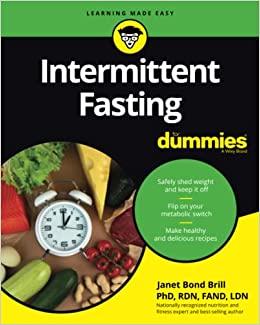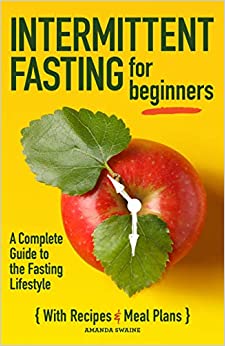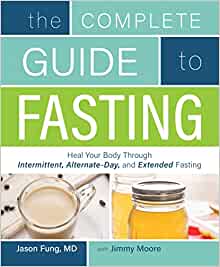Intermittent fasting is often a term that’s banded about by a celebrity or influencer. Or maybe you flipped past an article in a magazine and thought it was just another fad diet. But now is the time to re-look at this powerful tool. If you are looking at ways to improve health through intermittent fasting, read on!

Intermittent fasting is a natural way of life that humans have used for centuries. It is proven to be effective for not only weight loss, but a major aid to reduce, reverse or stop some major health conditions and perhaps extend lives in the process.
What is Intermittent Fasting?
Intermittent fasting, or IF, is a type of time-restricted dieting. So, rather than looking at what you can or can’t eat, it’s about eating (sensibly) in a certain window of time. This can be done on a daily or weekly basis, and doesn’t have to be to a strict format. There are ways to intermittently fast to suit your lifestyle and schedules, using it as a tool for health whenever you feel the need to use it.
When people think of fasting, they think of really long periods of not eating and really pushing their will power to extremes. But, relatively short amounts of fasting time can bring health improvements, and can easily be achieved by most.
Every night we fast for 7-8 hours as we sleep, hence the first meal being breakfast (or breaking the fast). With some methods of IF, its just about extending that period and allowing the body to adjust. That’s where the health benefits of intermittent fasting kick in.

Another benefit of intermittent fasting is, apart from a good book (if you want to go further into the science and techniques), it costs nothing to perform. There’s no expensive shakes or meals, no classes or medicines. Just a little stretching of your will power at a rate that suits you. You may even find you spend less at the supermarket too.
In this article, we’ll be exploring the most popular and easier methods of intermittent fasting.
16:8 Fasting
This is one of the most popular methods of intermittent fasting. It basically means fasting for 16 hours a day, and having an eating window of a healthy balanced diet for 8.
This can be altered to alternative times like 14:10 (14 fasting, 10 eating), 18:6, 20:4 and so on. What this means in reality is, if you finish you last meal at, say, 8pm, you don’t eat anything until 12pm lunchtime (or a variation that suits your lifestyle or work schedule).
The important thing in the fasting window is to not consume food or calorie-based drinks that will start off the digestive process, and negate the health benefits. Ideally, drinking water is the best choice, although unsweetened herbal tea, black tea or black coffee is acceptable if needed.
The 16:8 fasting method, doesn’t have to be daily and forever. it is still beneficial to do it a couple of times a week, a week a month, or whenever you feel like it.

OMAD Fasting
This stands for One Meal A Day. This is a more hardcore version of the 16:8 fast and not advisable for everyone. You have one meal a day, with no snacking or calorie-based drinks in the fast window.
It’s a tough method to start off with, and does take some getting used to. If you choose this method, it’s advisable to do it sparingly and not every day, as it will be hard to get all the nutrition you need for a health lifestyle into one meal.
5:2 Fasting
This method means eating normally (a healthy balanced diet), 5 days a week and then fasting or eating a restricted diet of 500 calories or less, for 2 days. These days don’t have to be consecutive. For the maximum health benefits, the restricted days are best if fully fasting, but still drinking water. Unsweetened black tea or black coffee is also acceptable.
Alternate Day Fasting
As the name suggests, this is where you fast every other day. One day having a healthy balanced diet, the next a fast day with only water (non sweetened black coffee if needed) and repeat. This one can be trickier as it involves 24 hours of not eating or consuming drinks with calories, and can be a tough ask for a beginner. Again ,the amount of days doing this is optional but bear in mind it can be tough on moods, fatigue etc.

The Health Benefits of Intermittent Fasting
Each IF technique offers different health benefits. Longer fast periods offer more and different health benefits than shorter ones, and it takes time for your body to adjust. This is why non fasting people never quite reach the beneficial window.
After approximately 12 hours or so of fasting, your body has used up the glucose from consumed food that it has been relying on for fuel. It then has to resort to the secondary source, stored fat. When the body uses fat as fuel it encourages fat loss and in turn weight loss.
The benefits of fasting doesn’t end there. Your body goes through a repair cycle, and a process known as autophagy kicks in. It’s an amazing process where old and dysfunctional cells are recycled, digested and replaced with healthier cells. Autophagy doesn’t start for 20-24 hours for most, so there’s increased benefits for those doing longer fasts.
Let’s look at some of the key benefits of intermittent fasting:
1. Lose Weight and Visceral Fat
Many people who try intermittent fasting do it for weight loss reasons. Purely from the fact of a smaller feeding window alone, will surely help with that (unless you are really overeating in that window). After 12 hours, your body switches its energy supply from glucose to stored fat, slowly burning away at those reserves and slimming your down in the process.
On top of that, intermittent fasting also increases your metabolism. This helps to burn the visible fat, but also the more dangerous visceral fat that accumulates around your organs and in the arteries.

2. Helps Blood Sugar Control
Several studies have shown intermittent fasting helps to significantly reduce blood sugar levels and helps with decreasing insulin resistance, increasing your body’s insulin sensitivity. In one study, it showed intermittent fasting could be as effective as medication for reducing insulin resistance. Regular intermittent fasting could reverse pre-diabetes and even prevent it from developing in the first place.
3. Reduces Inflammation in the Body
Fasting can decrease levels of inflammation in the body and help promote better health. Inflammation is closely linked to diet and lifestyle choices. Regular fasting can help reduce inflammatory markers that are linked to many health conditions, and could help those with existing inflammatory illnesses like asthma, IBS or autoimmune conditions.
4. Helps Heart Health
Heart disease is the number one killer around the globe. Changing your diet and lifestyle is one of the best ways to reduce your risk of developing heart disease. Intermittent fasting could reduce all the key factors involved with many heart conditions by helping reduce not only blood sugar levels and inflammation, but also blood pressure, triglycerides and the bad (LDL) cholesterol.

5. Brain Health
Though linked to animal research, some studies show that fasting could have some profound effects on the brain. The studies showed not only improvements in brain function from fasting, but also in the brains structure itself, helping to grown new nerve cells to help improve cognitive function.
There are also studies that show fasting causes an increase in the hormone BDNF (brain-derived neurotrophic factor). A deficiency in BDNF has been linked to some conditions like depression, as well as memory impairment in older adults.
As already mention, fasting also helps with inflammation in the body and in respect to the brain, help with neurodegenerative disorders like Parkinson’s and Alzheimer’s disease.
6. It may help reach Longer Lifespans
Intermittent fasting could help reduce the signs of ageing (through reduced inflammation throughout your body) and potentially extend your lifespan. Studies into rats showed fasted individuals lived, on average, 83% longer than those who didn’t. Bear in mind though that the link to human lifespan is yet to be made, but fasting is a popular lifestyle choice for those in the anti-ageing camps. Given the known benefits of changes in inflammation markers and metabolism to health, fasting could be a massive help to living a long, healthier life.

Is Intermittent Fasting Right for You?
Intermittent fasting has many known health benefits. In many cases, it means just a slight alteration to your feeding habits. But, it isn’t for everyone. I would recommend having a discussion with your doctor before starting intermittent fasting to make sure it is right for your individual circumstances, lifestyle or medical condition.
Many people starting a fast cycle can have issues with fatigue, irritability and hunger, but those pass once the body gets used to the process. Regular fasters rarely have these issues.
Intermittent fasting should be avoided for those under the age of 18, pregnant, breastfeeding, have a history of eating disorders, currently underweight and those with cancer or a weak immune system.
Recommended Books on Intermittent Fasting
Do you have experience with intermittent fasting? Do you find it benefits you? Please share in the comments!



